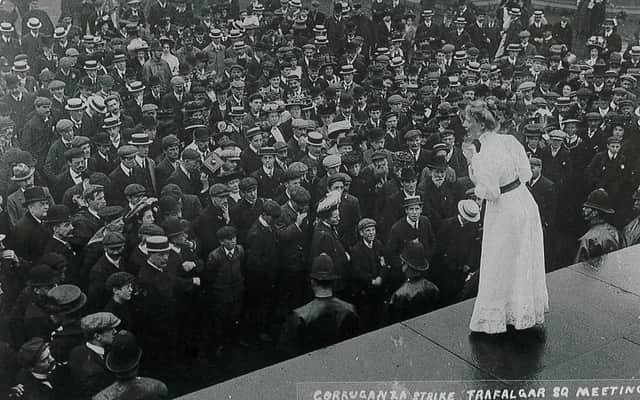Blue plaque unveiled for Scots womens rights campaigner


Trade unionist Mary Macarthur fought for equal pay and better rights for women, including those working in “appalling” conditions in munitions factories during the First World War.
A blue plaque to her is being unveiled on the eve of tomorrow International Women’s Day at 42 Woodstock Road, a semi-detached house in Golders Green that was her home at the height of her reputation and where she died on New Year’s Day 1921.
Advertisement
Hide AdAdvertisement
Hide AdMacarthur was born in Glasgow and shared her family’s Conservative politics until she attended a trade union meeting which inspired her to encourage female employees at her father’s drapery shop to join the Shop Assistants’ Union.
In 1902 she was elected president of the Scottish National District Council of the union and in 1903 she was the first woman to be elected to its national executive.
Macarthur fought for equal pay for thousands of women in the First World War who worked in munitions factories and other “male” jobs when men were conscripted into the armed forces.
In 1918, women workers on London buses and trams were the first to strike for equal pay, a moment she described as “a landmark for the women’s movement and for trade unionism”.
Macarthur also fought to end “sweated” labour, which saw women working from dawn until 11pm for less than a living wage, such as chain makers who worked in garden sheds hammering out chain links for as little as five shillings for a 50-hour week.
The trade union leader personally investigated sweated industries, contracting diptheria in the process.
Macarthur’s funeral at Golders Green cemetery was attended by politicians and trade unionists, confectionery workers from Bermondsey, munitions workers from Edmonton and chain makers from Staffordshire.
Advertisement
Hide AdAdvertisement
Hide AdAnna Eavis, curatorial director at English Heritage, said: “Mary Macarthur was a truly remarkable woman.
“She was tireless in her battle for equal pay and better working conditions and was responsible at least in part for the introduction of a minimum wage and the regulation of ‘sweated’ working.”
She said it was fitting to remember her achievements with a blue plaque during Women’s History Month and on the eve of International Women’s Day tomorrow.